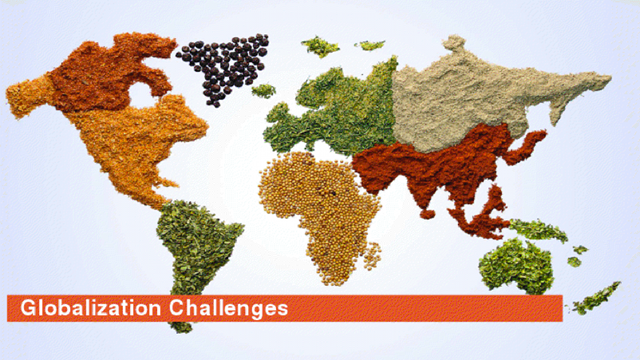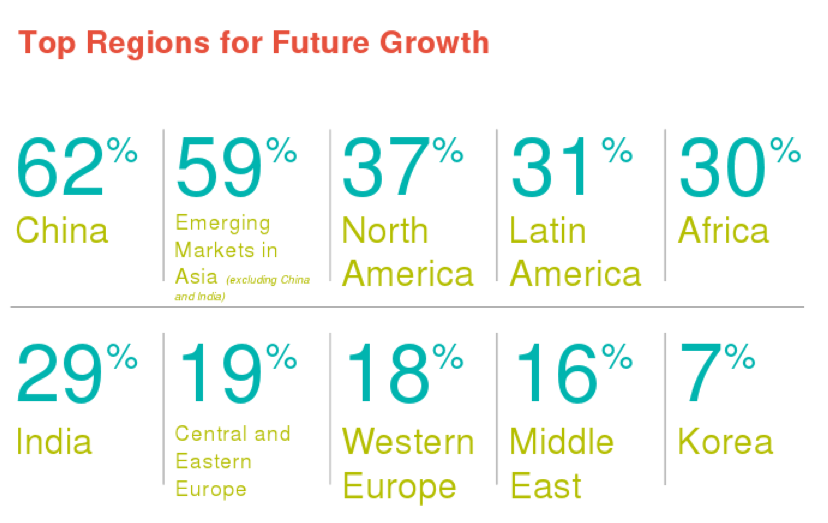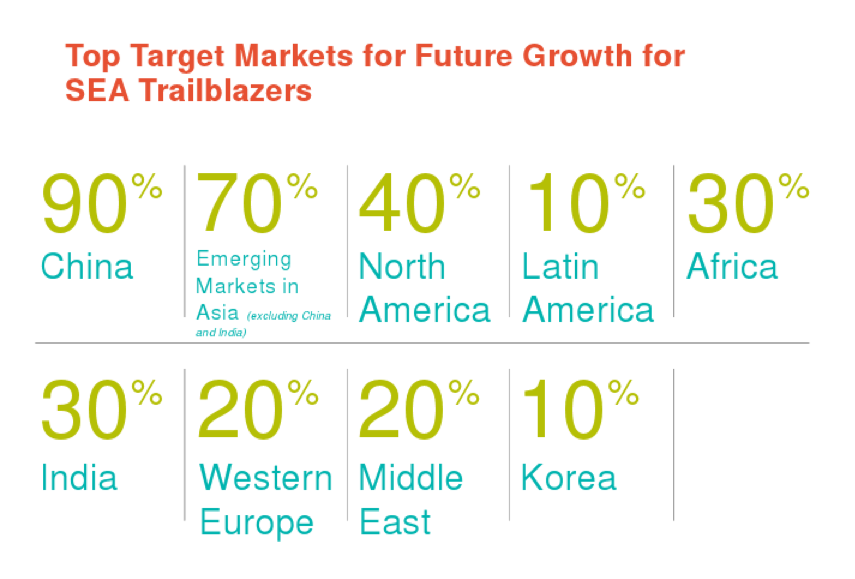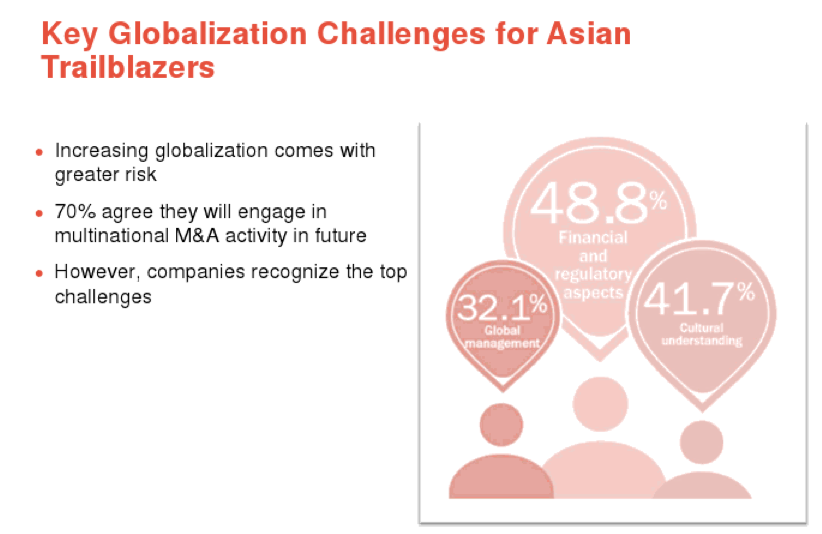SUMMARY
This is AI generated summarization, which may have errors. For context, always refer to the full article.

MANILA, Philippines – A recent study by global consulting firm Towers Watson points to a battle over top employees that will heat up in the coming years, particularly in Asia.
“In the top tier management in critical skills like marketing, finance and technology the fight is real, top talent is difficult to find. People are fighting tooth and nail for top talent, whether it is a domestic company or a multinational company,” said Managing Director of Towers Watson Philippines James G. Matti at a stakeholders meeting on September 5.
The study, which was the result of interviews with 104 Asian companies between November 2011 and January 2012, found that most multinational companies are after the same executive pool. Roughly 7 out of 10 respondents, or a whopping 77% hire what the study calls ‘internationally mobile employees’ (IMEs) for senior management positions.
‘Serial expats’ is the term Scott Burnett, Towers Watson’s Managing Director for South East Asia, jokingly use to describe the group.
“There are serial expats who make a career out of moving around the globe, they spend most of their career on the move, companies are having a lot of challenge thinking about how to retain those individuals,” he said, admitting he is one of them after years of living in Scotland, the United States, Singapore and the Philippines.
The report explained that “employers will face stiff competition” for mobile employees in “key positions.”
“Asian companies will be competing against European and American companies,” said Matti.
Roughly 6 out of every 10 companies polled said they see China and Emerging Markets in Asia as important areas for future growth.

Emerging markets in Asia were singled out by 59% of the respondent companies in the study. China was identified as an area for expansion by 62% of companies.
North America was the choice of 37% of respondents and was the third most popular destination for growth.
That likely means more companies in Asia vying for the same small qualified labor pool, the study noted.

“I think unfortunately right now there is no race taking place in Europe. We’re trying to get our story together in the U.S. So there is definitely a race towards Asia. That’s where the momentum is,” said Burnett.
Who are the hot internationally mobile employees?
Internationally mobile employees (IMEs) are not only highly skilled in their field but have the key personality traits that make them a valuable total package.
“What they have is the ability to operate in multiple cultures. They have a high tolerance for ambiguity and they have a very flexible approach to getting things done. They understand leadership through influence, they understand leadership through negotiation and leadership through collaboration,” said Burnett.
Many local or foreign hires expect to move and travel. “Most of them are spending 2 to 3 years [in a country, which] gives them an ability to understand the operations but not go native,” he joked.
Local hires made up more than half or 56% of senior managers and 69% of critically skilled employees, the study found. Although the senior managers were mostly local, the majority saw themselves traveling.
“Normally what I’ve seen with the Korean, Chinese and Japanese [companies is that] they will hire their own. Most of the senior managers come [from the country of origin] and are people they’ve really invested in,” Matti said.
Companies feel they can rely on these locally groomed employees to train new employees and instill company values, he explained.
Top-performing Asian talent still more cost effective
While some firms prefer to hire from home, Matti said he has seen a spike in mobile employees from Asia over the years.
“You will see more Asians now because of the cost ratio because it’s quite expensive to bring an American to the Philippines,” said Matti citing the expensive relocation packages some expatriates expect will include memberships to clubs or their kids’ tuition at an international school.
In the past 5 to 8 years, Matti said he has seen “a huge surge of Indian executives,” especially in Manila. “Perhaps the ‘Asian Century’ is really happening. Talent is no longer from the West; it is really from Asia,” he added.
“It’s a cost issue at the end of the day,” he said. “If you get somebody from, lets say, India or the Philippines who likewise has an MBA from Wharton or Harvard, they might be ideal because the cost is less.”
Still, Asian talent that has been groomed in the region will be up for grabs in the global battle for elite high level employees. That means companies have to take steps to ensure they can attract and temporarily retain workers.
What companies can do to deal with competition
The main message Towers Watson executives wanted to get across to multinational companies: have a plan.
Part of a global strategy for competition could simply be redefining the roles of current employees, Burnett said.
“There’s a solution to all your problems sitting in your organization and it’s called the middle manager. What we’ve really done is overload individuals in that role. They have the capability to extol the virtues of the culture and what it’s like to be there. [They can also be] somebody to listen and a source of inspiration. That all happens in that middle manager rank,” said Burnett.
He stressed that middle managers can be crucial for successful cultural communication — a serious issue many Asian companies encounter when they expand.
Asian companies in the survey reported that the 2nd most prevalent problem they encountered with expansion related to “cultural understanding and assimilation.”
However, the biggest problem most Asian companies cited was understanding and adapting to “financial, regulatory and political aspects of expansion.”

Burnett said knowing and managing employee benefit liabilities is a must. He explained that retirement and health provisions can prove costly in the long run and affect a company’s bottom line.
Meanwhile, comprehensive benefit packages can be an attractive incentive for employees. “85% of European and U.S. multinationals have global benefits packages in place, which will be an advantage in competing for global talent,” he said.
“South East Asian countries should be particularly mindful of benefits going forward,” he stressed. “As you see moves towards more socialist governments in Europe there is going to be challenging legislation coming out that we need to keep abreast of.”
Burnett maintained that “South East Asia is one of the most attractive places to be.”
However, the popularity of the region is a double-edged sword. It’s strong growth during the global slowdown is drawing in more companies but also more competition for a small pool of top employees.
The solution according to Burnett is for companies to find more ways to differentiate themselves and cater to top managers. – Rappler.com
Add a comment
How does this make you feel?


![[Time Trowel] Evolution and the sneakiness of COVID](https://www.rappler.com/tachyon/2024/02/tl-evolution-covid.jpg?resize=257%2C257&crop=455px%2C0px%2C1080px%2C1080px)







![[PODCAST] Beyond the Stories: Bakit palaging kulang ang tulong ng Duterte gov’t sa mga mahihirap?](https://www.rappler.com/tachyon/2022/03/newsbreak-ls-doots-1.jpg?resize=257%2C257&crop=0px%2C0px%2C1080px%2C1080px)




There are no comments yet. Add your comment to start the conversation.